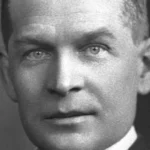In 2025, the global scientific community continues to be driven by exceptional individuals whose groundbreaking research and influence are reshaping our understanding of the world. Based on citation metrics, prestigious awards, and transformative contributions, the following scientists stand out as leaders in their respective fields.
🧠 Yoshua Bengio (Canada/France) – Artificial Intelligence Pioneer
Yoshua Bengio, a professor at the Université de Montréal and scientific director of the AI institute MILA, is renowned for his foundational work in deep learning. As one of the “Godfathers of AI,” Bengio’s research has significantly advanced neural networks and machine learning. He received the 2018 Turing Award alongside Geoffrey Hinton and Yann LeCun. In 2024, Bengio was awarded the VinFuture Prize’s grand prize for his contributions to deep learning algorithms. He is also recognized as the most-cited computer scientist globally and the most-cited living scientist across all fields.
🧬 Sir Demis Hassabis (UK) – AI and Protein Structure Prediction
Sir Demis Hassabis, co-founder and CEO of DeepMind, has been instrumental in developing AlphaFold, an AI system that accurately predicts protein structures. This breakthrough has vast implications in medicine and biology, potentially leading to advancements in drug development and treatments for diseases like cancer and Alzheimer’s. In recognition of this work, Hassabis was awarded the 2024 Nobel Prize in Chemistry.
🧪 Robert S. Langer (USA) – Biotechnology and Drug Delivery Innovator
Robert S. Langer, a professor at the Massachusetts Institute of Technology (MIT), is one of the most prolific and cited engineers in history. With over 1,600 scientific papers and more than 445,000 citations, his work in drug delivery systems and tissue engineering has revolutionized biotechnology. Langer’s research has led to the founding of over 40 biotechnology companies, including Moderna.
🌿 Dr. Friederike Otto (Germany/UK) – Climate Science and Extreme Weather Attribution
Dr. Friederike Otto, a physicist and Senior Lecturer at the Grantham Institute, Imperial College London, is a leading figure in climate science. As a co-founder of World Weather Attribution, her research focuses on the influence of climate change on extreme weather events. Otto’s work has been pivotal in linking specific weather events to climate change, influencing global adaptation strategies and sustainability litigation. In 2021, she was recognized by TIME magazine among the world’s most influential individuals.
🔬 Dr. Younan Xia (USA/China) – Nanotechnology and Materials Science Leader
Dr. Younan Xia, a professor at the Georgia Institute of Technology, is a prominent figure in nanotechnology and materials science. His research has significantly advanced the synthesis of nanomaterials with applications in medicine and engineering. Xia has been recognized as a Highly Cited Researcher in Chemistry and Materials Science by Clarivate Analytics and has received numerous prestigious awards, including the ACS Linus Pauling Medal in 2024.
🌊 Dr. Britney Schmidt (USA) – Antarctic Research and Climate Change
Dr. Britney Schmidt, an associate professor at Cornell University, has made significant contributions to our understanding of Antarctic ice shelves and climate change. Using the underwater robot Icefin, her research has provided insights into how warm ocean waters are affecting glaciers like Thwaites Glacier. In 2023, Schmidt was named to the TIME 100 list of the most influential people for her work on climate change.
These scientists exemplify the pinnacle of research and innovation in their respective fields. Their work not only advances scientific knowledge but also has profound implications for addressing some of the most pressing challenges facing humanity today.








